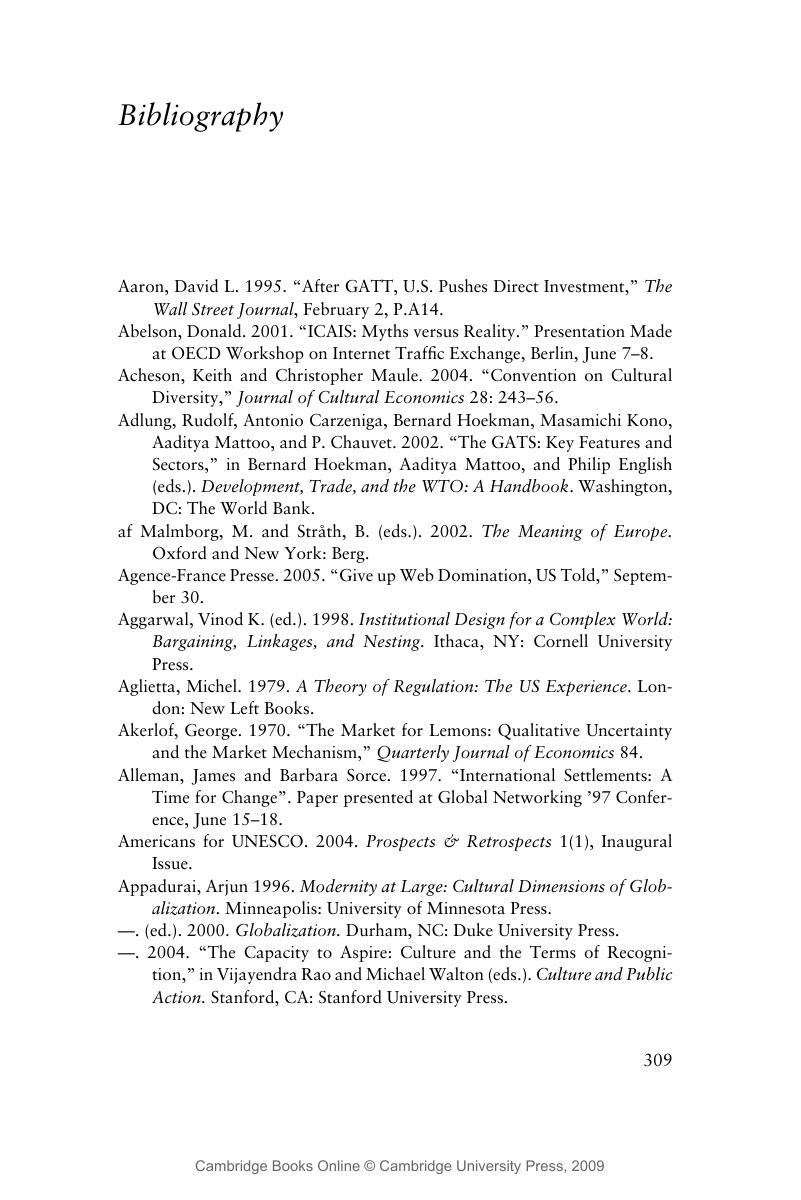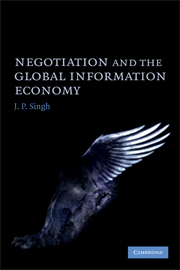Book contents
- Frontmatter
- Contents
- List of figures
- List of tables
- List of acronyms
- Preface
- 1 Introduction
- 2 Power, interests, and negotiations
- 3 Services and intellectual property: multilateral framework negotiations
- 4 Cultural industries and telecommunications: multilateral sectoral negotiations
- 5 Infrastructure pricing negotiations: evaluating alternatives when facing a significant market power
- 6 Electronic commerce: reaching agreement when facing market power in Internet governance and data privacy
- 7 Conclusion: power and governance
- Bibliography
- Index
- References
Bibliography
Published online by Cambridge University Press: 29 June 2009
- Frontmatter
- Contents
- List of figures
- List of tables
- List of acronyms
- Preface
- 1 Introduction
- 2 Power, interests, and negotiations
- 3 Services and intellectual property: multilateral framework negotiations
- 4 Cultural industries and telecommunications: multilateral sectoral negotiations
- 5 Infrastructure pricing negotiations: evaluating alternatives when facing a significant market power
- 6 Electronic commerce: reaching agreement when facing market power in Internet governance and data privacy
- 7 Conclusion: power and governance
- Bibliography
- Index
- References
Summary

- Type
- Chapter
- Information
- Negotiation and the Global Information Economy , pp. 309 - 346Publisher: Cambridge University PressPrint publication year: 2008



